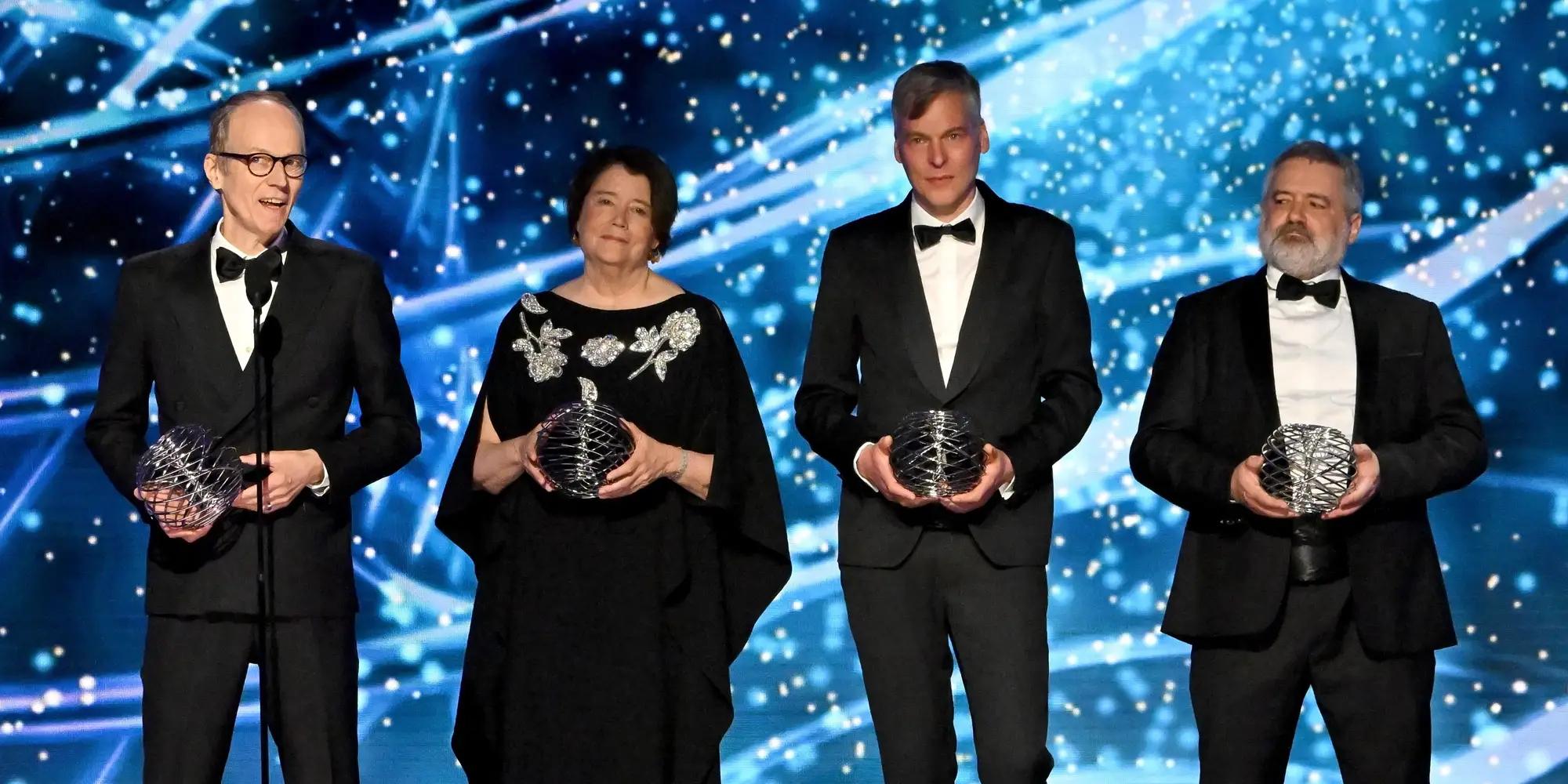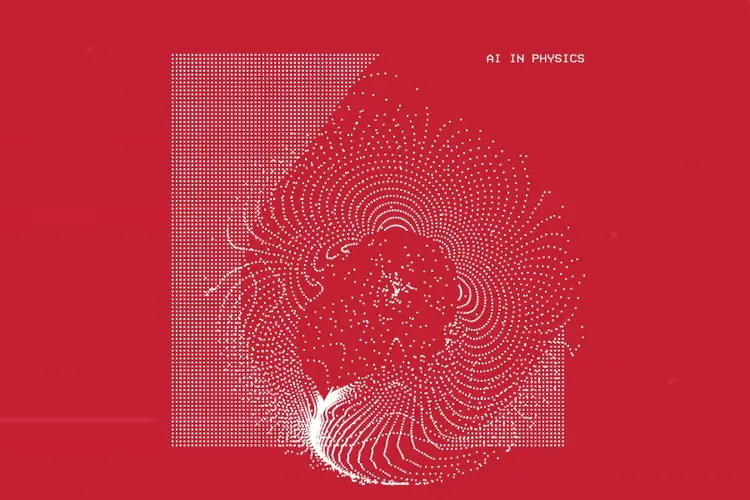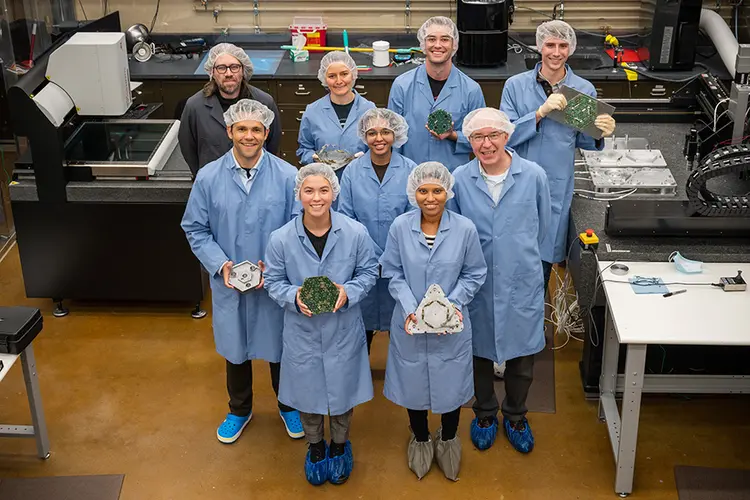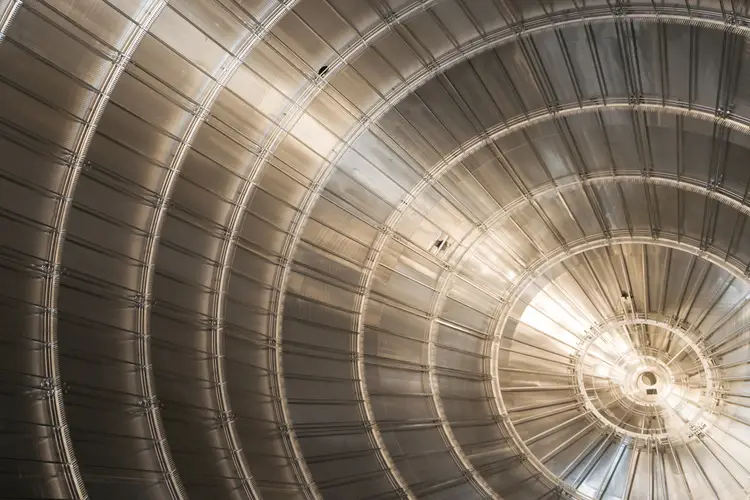
LHC Experiment Collaborations at CERN Receive Breakthrough Prize
Media Inquiries
Experiments at the Large Hadron Collider at CERN have been pushing the boundaries of what is known about fundamental physics(opens in new window).
These efforts were recognized earlier in April, when four of the collaborations won the $3 million Breakthrough Prize in Fundamental Physics by the Breakthrough Prize Foundation(opens in new window).
Popularly known as the "Oscars of Science" the Breakthrough Prize was created to celebrate scientific advancements. The full awards ceremony, which was hosted this year by actor and comedian James Corden, is on YouTube(opens in new window).
Thousands of researchers, including scientists from Carnegie Mellon University as part of the Compact Muon Solenoid (CMS) experiment, are named among the laureates for papers authored based on LHC Run-2 data up to July 2024. Along with the CMS collaboration, the ALICE(opens in new window), ATLAS(opens in new window) and LHCb(opens in new window) collaborations were recognized.
Carnegie Mellon joined the CMS experiment in 1994 with the first group of U.S. institutions. Since then, more than two dozen faculty, staff and students have worked on the CMS, including Manfred Paulini, associate dean for research for the Mellon College of Science.
"When Carnegie Mellon joined the CMS experiment under now-Emeritus Professor Tom Ferguson(opens in new window)'s guidance, researchers contributed expertise in detector construction, operations and physics analysis," said Paulini, who joined the CMS group in 2007.
Today, Carnegie Mellon's Wean Hall is home to a module assembly center, where students, postdoctoral researchers, faculty, engineers and technicians are building and testing thousands of 20-centimeter hexagonal electronics modules that will be used for a High-Granularity Calorimeter (HGC) upgrade to the CMS detectors. The upgrade will enhance the quality of the recorded data as well as cope with large amounts of ionizing radiation.
In addition, CMU also is involved in upgrading the CMS online event filter processing system, called a "trigger," which is composed of a combination of algorithms that save only the information on collisions that show characteristics of interest as they occur.
"The CMS group at Carnegie Mellon has grown substantially with the hires of John Allison(opens in new window), Matteo Cremonesi(opens in new window) and Valentina Dutta(opens in new window)," Paulini said.
Among the recipients who accepted the Breakthrough Prize was CMU alumna and Fermilab Distinguished Scientist Patricia McBride. McBride, a 1977 physics graduate, served as the CMS experiment spokesperson from 2022 to 2024 and represented the collaboration at a star-studded awards ceremony in Los Angeles on April 5.
"We've been collecting a lot of data since 2015 and doing a lot of analysis and published many, many papers to get the most precise measurements so we have an understanding of the model that we know and what we don't know to try to answer some of the fundamental questions we have about the universe," McBride said at the event.
McBride, who is a 2019 CMU Alumni Award recipient(opens in new window), visited Carnegie Mellon last in 2023 during the U.S. CMS collaboration's annual meeting(opens in new window).
"It is great to see the science of CMS recognized with the Breakthrough Prize that was accepted on behalf of CMS by Patty McBride, who we always consider an honorary member of our CMS group at CMU," Paulini said.
The prize was awarded to the collaborations for their "detailed measurements of Higgs boson properties confirming the symmetry-breaking mechanism of mass generation, the discovery of new strongly interacting particles, the study of rare processes and matter-antimatter asymmetry and the exploration of nature at the shortest distances and most extreme conditions at CERN's Large Hadron Collider."
"I am extremely proud to see the extraordinary accomplishments of the LHC collaborations honored with this prestigious Prize," said Fabiola Gianotti, director-general of CERN. "It is a beautiful recognition of the collective efforts, dedication, competence and hard work of thousands of people from all over the world who contribute daily to pushing the boundaries of human knowledge."
Following consultation with the experiments' management teams, the Breakthrough Prize Foundation will donate the prize money to the CERN & Society Foundation(opens in new window). The prize money will be used to offer grants for doctoral students from the collaborations' member institutes to spend research time at CERN, giving them experience in working at the forefront of science and new expertise to bring back to their home countries and regions.
CMU scientists listed among the prize winners
The full list of laureates is available at the Breakthrough Prize Foundation website(opens in new window).
Current Faculty
John Alison, associate professor
Matteo Cremonesi, assistant professor
Valentina Dutta, assistant professor
Manfred Paulini, professor and MCS associate dean for research
Emeritus Faculty
Thomas Ferguson
James Russ
Helmut Vogel
Current Postdoctoral Researchers
Alejandro Gómez Espinosa
Pritam Palit
Peter Meiring
Former Postdoctoral Researchers / Research Scientist
Patrick Bryant
Igor Vorobiev
Marc Weinberg
Current Graduate Students
Sitong An
Abhirami Harilal
Aleesha Kallil Tharayil
Chuyuan Liu
Sindhu Murthy
Kyungmin Park
Andrew Roberts
Wesley Terrill
Former Graduate Students
Michael Andrews
Aristotle Calamba
Benjamin Carlson
Yutaro Iiyama
Tanmay Mudholkar
Alejandro Sanchez
Menglei Sun


